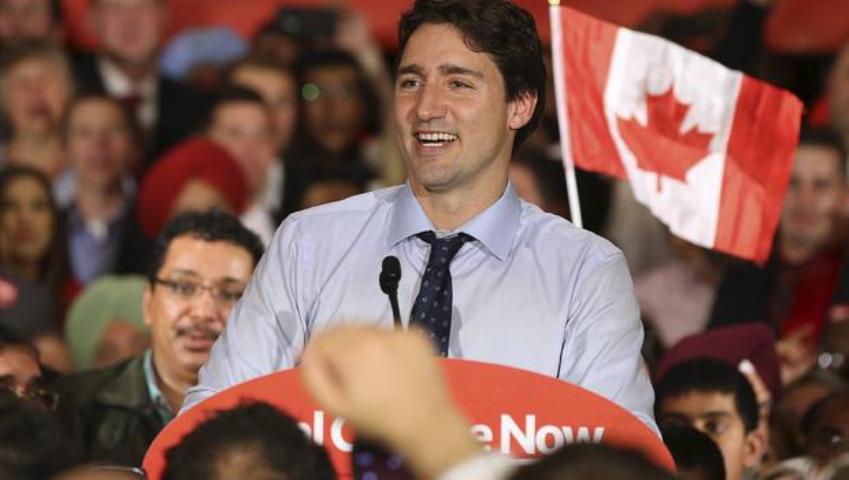“Though passion may have strained, it must not break our bonds of affection. The mystic chords of memory… will yet swell the chorus of the Union, when again touched, as surely they will be, by the better angels of our nature.”
– Lincoln’s first inaugural address, March 4, 1861

Regular readers know that the majority of my commentaries stick to domestic issues. Sometimes, however, something gets my attention that’s difficult to ignore – particularly when it’s something positive.
In reporting the recent election of Canada’s new prime minister, Justin Trudeau, Forbes magazine (Oct. 20), attributed much of his win to “Leadership Tone.”
Canada’s Globe and Mail (Oct. 19), said it best:
“In his victory speech in Montreal, Mr. Trudeau sent out a message of unity to Canadians, continuing the positive approach he adopted during the campaign. The Liberals operated on the principle that ‘you can appeal to the better angels of our nature, and you can win doing it,’ he said.
Forbes writes (Oct. 20), “One of the biggest areas in leadership research in the last decade has been that of emotions and their importance in leadership. Setting the right tone from the top is an element of this that is getting a great deal of attention. The expression ‘tone at the top’ is something that boards are spending more time on, as they realize how the leader’s tone at the top cascades down throughout the organization. The tone Justin set was one that seems to have reached the Liberal party workers going door-to-door, as well as in the ways most Liberal candidates, in their better moments, conducted themselves.”
As he was sworn in yesterday, The New York Times writes (Nov. 4), “ ‘It’s been a long time since you’ve heard a crowd cheering that way in Ottawa for something other than a sports team,’ said Leah Jones, one of the many spectators who said they hoped that Mr. Trudeau, the son of Prime Minister Pierre Elliott Trudeau, will change how Canada is governed. ‘It’s a very different feel.’
“A friend, Anne Marie Todkill, added, ‘It’s been a depressing 10 years, I think, for a lot of Canadians, it’s been very divisive.’ ”
A second Times story reported (Oct. 20), “ ‘A positive, optimistic, hopeful vision of public life isn’t a naïve dream — it can be a powerful force for change,’ Mr. Trudeau said…” ‘It’s an incredible pleasure for me to be before you today, … to present a cabinet that looks like Canada.’ ” Trudeau said of his cabinet that contains an equal split of both men and women.
Asked why, the new prime minister said, “Because it’s 2015. … “We’re forming a government that places trust at the very centre of its actions,” he added.
Another key to the success of his campaign, and in my opinion, Canada’s election process in general, is the fact that “Canadian law bans corporations and unions from making political donations, and imposes fairly low limits on personal donations,” the Times points out.
No corporate donations; limited personal donations? Gee, what a concept. Sounds like Canadians get to decide who they want to run the country by virtue of… the actual issues. Shocking!
Summing up his election, Trudeau said, “I feel good about how the campaign went. I feel good about the kind of messages that we were able to share with Canadians and the response they gave to message of pulling people together in a positive way …
“I’m also very, very aware of both the opportunity and the responsibility that we have to live up to, having put forward a strong vision for growth, for unity, for positivity in this country. We now get to start working on delivering that.”
Campaigning is one thing; governing, another. It will be interesting to see if Mr. Trudeau will be able to maintain his optimism as he wrestles with the practicality of governance.
Nonetheless, based on his leadership tone, he’s off to a good start.
Comments









